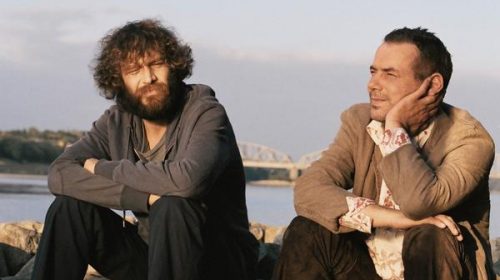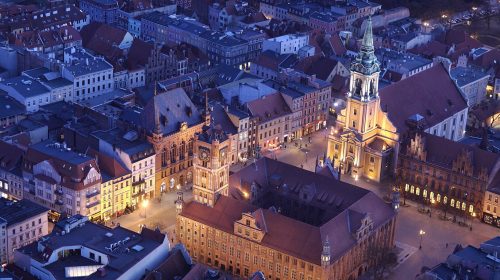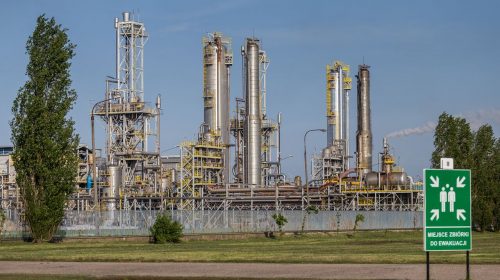Piotr Wojtowicz is a cinematographer, born on 23rd January, 1958, in Toruń. He graduated from a Secondary Technical School of Electrical Engineering in Cracow, and then started working for the Cracow-based branch of Polish Television, in 1979.
In 1986, he graduated from the Department of Photography and& Television Production at the Lodz Film School. In 2008, he was awarded the academic degree of Doctor of Film Art. A year later, he returned to the film school in Łódź as an academic teacher at the Department of Photography and Television Production. In 2019, he became a professor.
He made his début as a cinematographer in 1986, in the full-length film ,,Rykowisko” directed by Grzegorz Skurski. He has worked with film director Olaf Lubaszenko on a number of film projects, including ,,Sztos” and ,,Sztos 2″, and the comedy ,,E=MC2″. In 2002, he was a cinematographer for the TV series ,,Sfora” and the full-length film ,,Sfora: bez litości by Wojciech Wójcik, both of which featured a performance of Antoni Ostrouch from Włocławek.
As a cinematographer, he was also involved in the film production,, Kto nigdy nie żył “/ “Who Never Lived” directed by Andrzej Seweryn, which was shot in many locations, for example in Toruń. He is the author of cinematography for the documentary film ,,Auschwitz – zstąpienie do piekieł” by Ewa Pytka, the love story ,,Autoportret z kochanką” / “A Self-Portrait with a Lover” by Radosław Piwowarski, and the bio-pic ,,Prymas. Trzy lata z tysiąca” / “Primate – three years in a thousand” directed by Teresa Kotlarczyk.
Piotr Wojtowicz was the man behind the camera in a number of popular Polish TV series, such as ,,Ojciec Mateusz”, ,,Na dobre i na złe”, ,,Kryminalni”, ,,Czas honoru”, and ,,Apetyt na życie”. He was also involved in making video clips for such artists as Budka Suflera, Piersi, Grzegorz Ciechowski, and singer Stanisław Sojka.
The cinematographer is a member of the Polish Society of Cinematographers.
Selected Filmography
As cinematographer
- 1986 – “Rykowisko”, dir. by Grzegorz Skurski
- 1991 – “Skarga”, dir. by Jerzy Wójcik
- 1997 – “Sztos”, dir. by Olaf Lubaszenko
- 2002 – “Tam i z powrotem”/ There and Back, dir. by Wojciech Wójcik
- 2002 – “E=MC2”, dir. by Olaf Lubaszenko
- 2002 – “Sfora” (TV series)
- 2002 – “Sfora: bez litości”, dir. by Wojciech Wójcik
- 2006 – “Kto nigdy nie żył”/”Who Never Lived”, dir by Andrzej Seweryn
- 2010 – “Różyczka”/”Little Rose”, dir. by Jan Kidawa-Błoński
- 2011 – “Sztos 2”, dir. by Olaf Lubaszenko
Cinematography
- 1995-1998 – “Ekstradycja”/”Extradition” (TV series, seasons 1-3)
- 1996 – “Autoportret z kochanką”/”A Self-Portrait with a Lover”, dir. by Radosław Piwowarski
- 1997 – “Auschwitz – zstąpienie do piekieł”, dir. by Ewa Pytka
- 2000 – “Prymas. Trzy lata z tysiąca”/”Primate – three years in a thousand”, dir. by Teresa Kotlarczyk
- 2002-2004 – “Na dobre i na złe” (TV series)
- 2004–2008 – “Kryminalni” (TV series)
- 2007 – “Jutro idziemy do kina”, dir. by Michał Kwieciński
- 2008 – “Czas honoru” (TV series)
- 2010 – “Apetyt na życie” (TV series)
- 2015-2019 – “Ojciec Mateusz” (TV series)
Selected Awards
Festiwal Teatru Polskiego Radia i Teatru Telewizji Polskiej “Dwa Teatry” (Festival of the Polish Radio and Television Theatre ‘Two Theatres’) – an award for cinematography in the film Lato / Summer; International Festival of War Films – an award for cinematography in the film Jutro idziemy do kina; the Andrzej Munk Film Award for the film Cheat; Gdynia Film Festival – an award of the “Lauer” Travel Office for cinematography in Autoportret z kochanką / A Self-Portrait with a Lover; Tarnów Film Awards – the Leliwita Silver Statuette special award.




